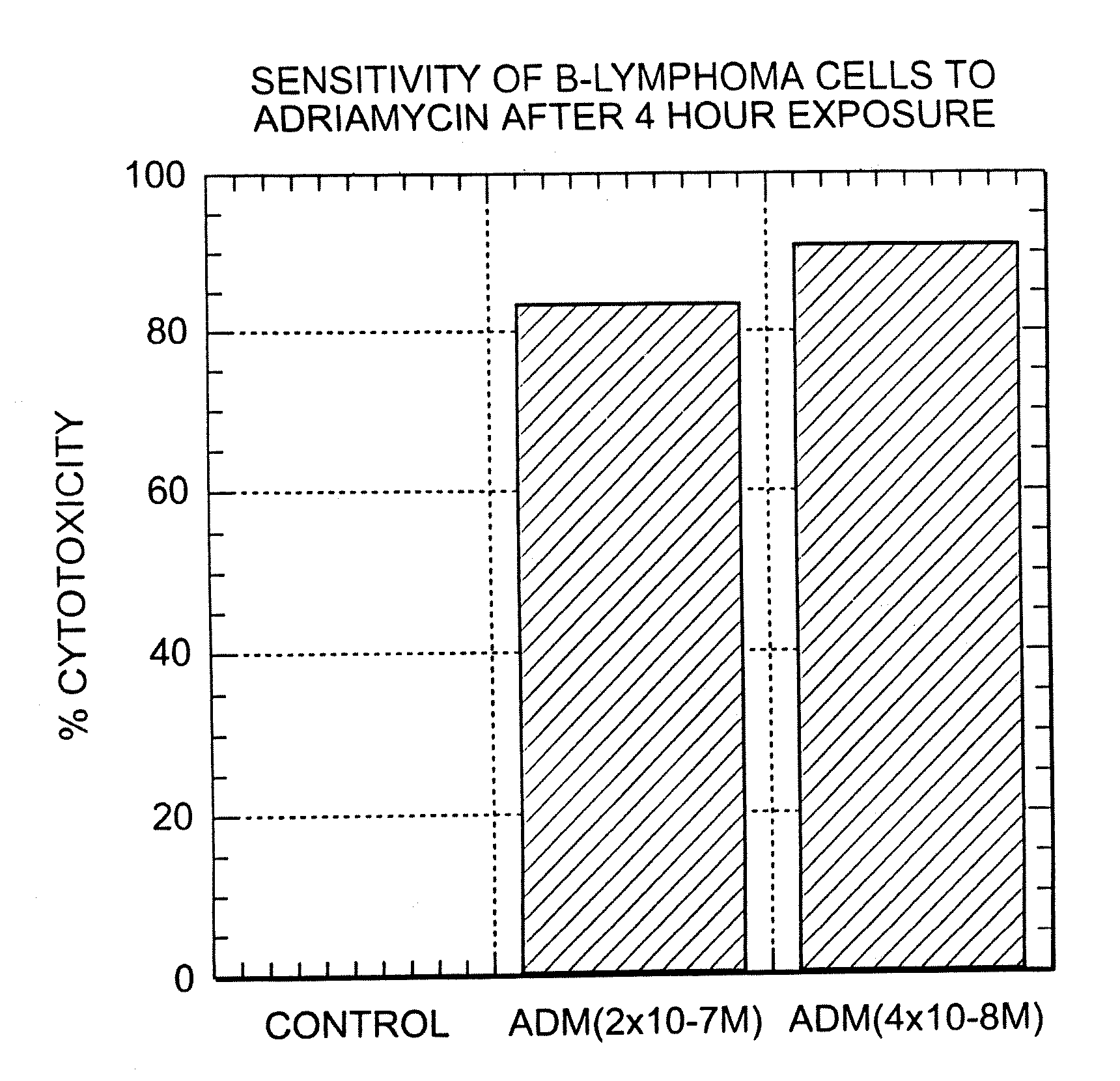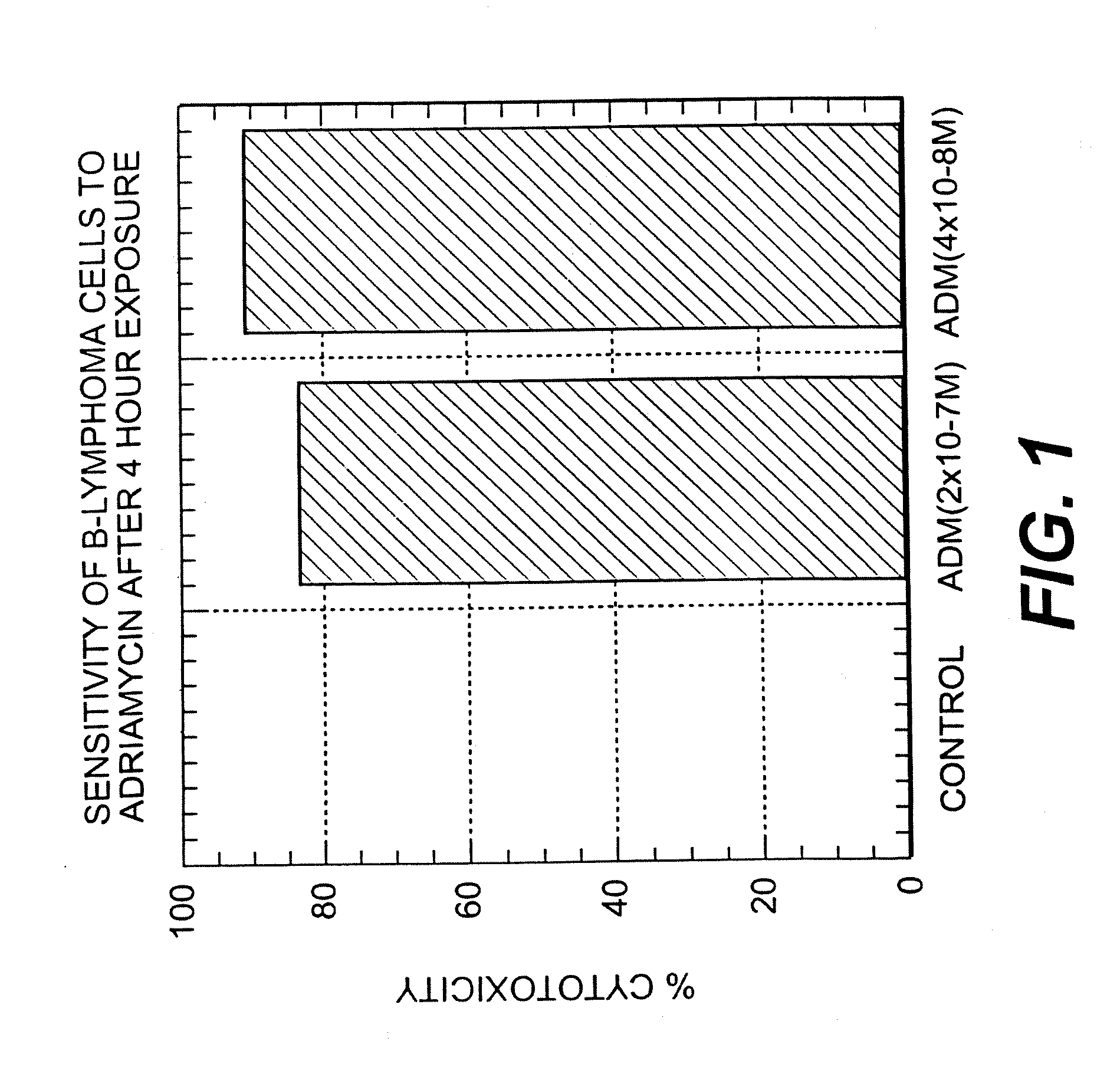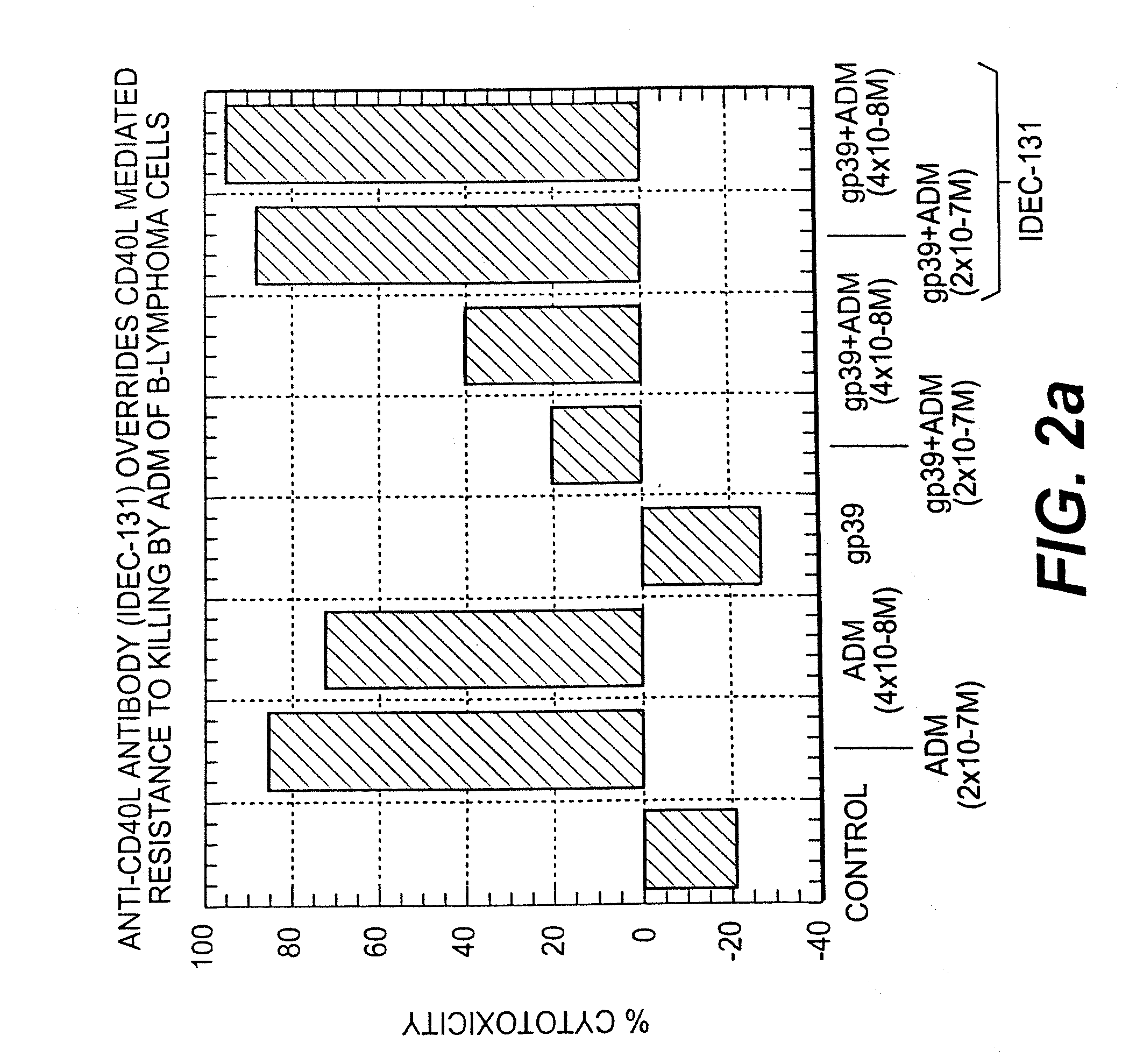Immunoregulatory antibodies and uses thereof
a combination antibody and immunoglobulin technology, applied in the field of synergistic combination antibody therapy, can solve the problems of non-human monoclonal antibodies (e.g. murine monoclonal antibodies) typically lacking human effector functionality, and relaps
- Summary
- Abstract
- Description
- Claims
- Application Information
AI Technical Summary
Benefits of technology
Problems solved by technology
Method used
Image
Examples
example 1
Properties of B Lymphoma Cells. DHT-4 Cells
[0245]The concept that anti-CD40L antibody could block CD40L-CD40 mediated survival of malignant B-cells from chemotherapy induced toxicity / apoptosis was tested in vitro using IDEC-131, and the B-lymphoma cell line, DHL-4 (Roos et al., Leuk. Res. 10: 195-202 (1986)) exposed to adriamycin (ADM). IDEC-131 is a humanized version of the murine, monoclonal anti-human CD40L antibody, 24-31.
[0246]Initially, the minimum concentration of ADM cytotoxic to DHL-4 cells was determined by exposing DHL-4 cells for 4 hours to different concentrations of ADM. The cell cytotoxicity of DHL-4 cells after 5 days in culture was measured by Alamar Blue, a dye-reduction assay by live cells (see Gazzano-Santoro et al., J. Immunol. Meth. 202: 163-171 (1997)). Briefly, 1×105 DHL-4 cells in growth medium (RMPI-1640 plus 10% Fetal Calf Serum) were incubated with varying concentrations of ADM (1×10−6 M to 1×10−8 M) in cell culture tubes at 37° C. for 4 hours. After incu...
example 2
Anti-CD40L Antibody Overrides CD40L Mediated Resistance to Killing by to Killing, by Adrianmy in Of-Lymphoma Cells
[0248]FIG. 2A shows the effect of an anti-CD40L antibody on CD40L-CD40 mediated resistance of DHL-4 cells to cell death induced by ADM. DHL-4 cells (0.5×106 cells / ml) were incubated in the presence of 10 μg / ml of soluble CD40L (sCD40L, P. A. Brams, E. A. Padlan, K. Hariharan, K. Slater, J. Leonard, R. Noelle, and R. Newman, “A humanized anti-human CD 154 monoclonal antibody blocks CD 154-CD40 mediated human B cell activation,” (manuscript submitted)) for 1 hour at 37° C. After 1 hour of incubation, low concentrations of ADM (2×10−7 M-4×10−8 M) were added and incubated for another 4 hours in the presence or absence of CD40L (10 μg / ml). Following exposure to ADM, cells were washed and resuspended in growth medium at 0.5×106 cells / ml concentration, and 100 μl of cell suspension added to each well of 96-well flat bottom plate, in duplicate, with or without sCD40L. sCD40L (10...
example 3
CD40L-CD40 Signaling Prevents Apoptosis of B-Lymphoma Cells by Anti-CD20 Antibody, RITUXAN®
[0251]The effect of CD40L-CD40 mediated signaling on anti-CD20 antibody induced apoptosis of B-lymphoma cells was determined using an in vitro system involving DHL-4 cells and the surface cross-linking of RITUXAN®. DHL-4 cells (0.5 to 1×106 cells / ml) were cultured with sCD40L (10 μg / ml) at 37° C. After overnight culture, cells were harvested and incubated with 10 μg / ml of RITUXAN® or the control antibody (CE9.1; an anti-CD4 antibody) with or without sCD40L (10 μg / ml) on ice. After 1 hour of incubation, cells were centrifuged to remove unbound antibodies, and resuspended at 1×106 cells / ml in growth medium (5% FCS-RPMI) and cultured in tissue culture tubes. The cells surface bound antibodies were cross-linked by spiking F(ab′)2 fragments of goat anti-human Ig-FCγ specific antibodies at 15 μg / ml, and the cultures were incubated at 37° C. until assayed for apoptosis. Apoptosis was detected using a...
PUM
| Property | Measurement | Unit |
|---|---|---|
| pH | aaaaa | aaaaa |
| densities | aaaaa | aaaaa |
| adhesion | aaaaa | aaaaa |
Abstract
Description
Claims
Application Information
 Login to View More
Login to View More - R&D
- Intellectual Property
- Life Sciences
- Materials
- Tech Scout
- Unparalleled Data Quality
- Higher Quality Content
- 60% Fewer Hallucinations
Browse by: Latest US Patents, China's latest patents, Technical Efficacy Thesaurus, Application Domain, Technology Topic, Popular Technical Reports.
© 2025 PatSnap. All rights reserved.Legal|Privacy policy|Modern Slavery Act Transparency Statement|Sitemap|About US| Contact US: help@patsnap.com



